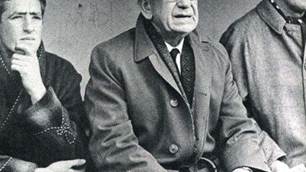If you’re off on an overseas work junket, You’ll likely be taxed the same over there as you are here, right? It’s different for athletes .
If you’re off on an overseas work junket, You’ll likely be taxed the same over there as you are here, right? It’s different for athletes .
 Chris Judd, Usain Bolt, Adam Gilchrist and Renae Hallinan better hide those logos overseas ... Image: Getty Images
Chris Judd, Usain Bolt, Adam Gilchrist and Renae Hallinan better hide those logos overseas ... Image: Getty ImagesSportsmen and women will choose not to play in various places for any number of reasons: ignorance of geography, terrorist threats/unsanitary athlete villages (love how those two have somehow been lumped together), dull post-game nightlife options. But there’s a new and potentially quite general cause for athlete hodophobia – taxes.
When it comes to politics, the majority of professional sports stars start out neutral and disinterested. Then they find out what they have to regularly remit to the state, and migrate to the conservative end of the spectrum accordingly. If the athlete has the power to choose where they live (ie, they’re not tied down to a team in a particular city), they move en masse to places with low – or no – personal income tax rates. There’s a reason enclaves of pro athletes can be found in Switzerland and Florida, and it’s not chocolates or orange juice.
When you observe how sports stars get taxed, you begin to understand why they hold views that wouldn’t be out of place at a Tea Party rally. By definition, professional athletes have to travel for their work, and in every location they play, they’re paying tax according to that jurisdiction’s code. Add up the number of countries, states and provinces that a globetrotting athlete competes in and it’s no surprise their returns can end up phone book-thick. For the pro
jock, a good accountant is as important as a good coach.
As governments have tried to dream up ways to shift their tax burden off residents, visiting athletes have become a popular target for revenue collectors. It came to a head at mid-year when Usain Bolt made it plainly known that he wouldn’t run in the IAAF Diamond League event in Crystal Palace because of the British tax regime, and wouldn’t compete at all in Britain until the 2012 Olympics. The particular contention in this case was how Her Majesty’s Revenue and Customs would pursue not only the money Bolt stood to make directly off the race (the first-place prize at a Diamond League event is US$10,000), but also his passive income – such as the $20 million that the world’s fastest man receives to endorse Puma. Revenue and Customs bases its take on the proportion of events Bolt competes in: if he were to compete in ten events, it would tax him on one-tenth of his endorsement income at 50 percent.
As many star athletes now make multiples of their on-field earnings off the field, it can add up to a huge hit. The OECD, that organisation we turn to when we’re trying to figure out if our economic performance is any good, is currently reviewing its model conventions relating to the taxation of athletes and entertainers (travelling musicians face many of the same issues), with the idea that various jurisdictions can pursue indirect income, but how they choose to compute the taxable total is up to the state.
The potential for the tax code to become an impediment for the Usain Bolts of the world is very real. Golf’s Ryder Cup in Wales last month was under a cloud as the American players contemplated the possibility that, on balance, they were going to pay to play in the event (the team competition has no prize money). The British government has agreed to exempt the London Olympics and next year’s European Champions League Final from these tax provisions, and events such as the 2014 Commonwealth Games in Glasgow are lining up for similar treatment.
Absent these exemptions, the possibilities are absurd – star athlete pitchmen covering up their logos, or wearing generic-brand merchandise during certain times of the year. Or maybe we’re going to start seeing a lot of events staged in the Cayman Islands?
– Jeff Centenera
Related Articles

Top 20 of women's tennis

Top 20 of women's tennis













